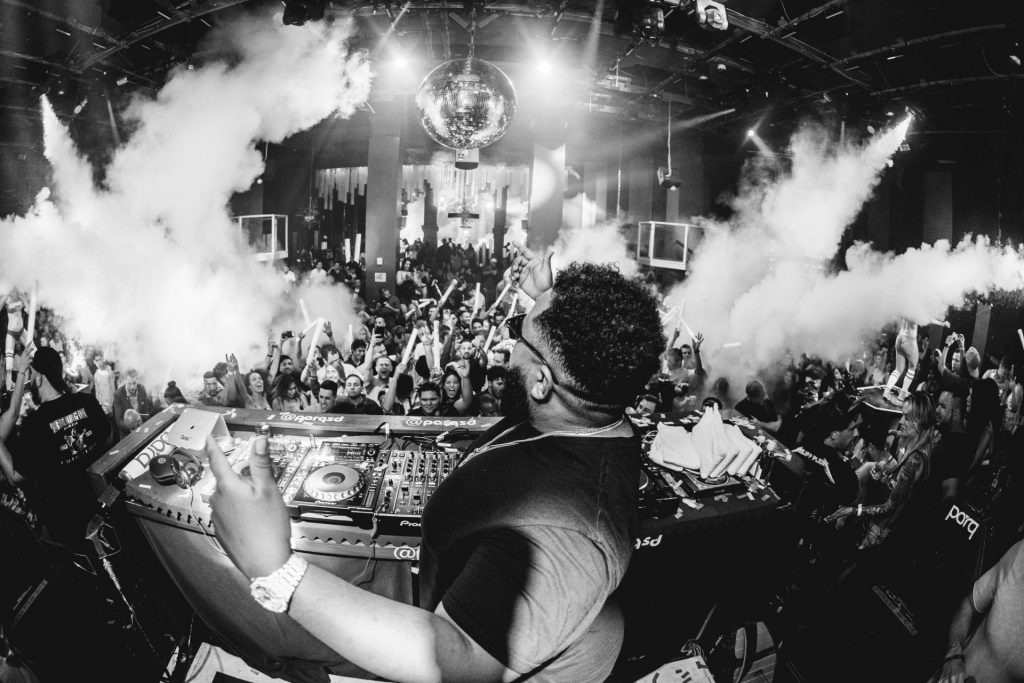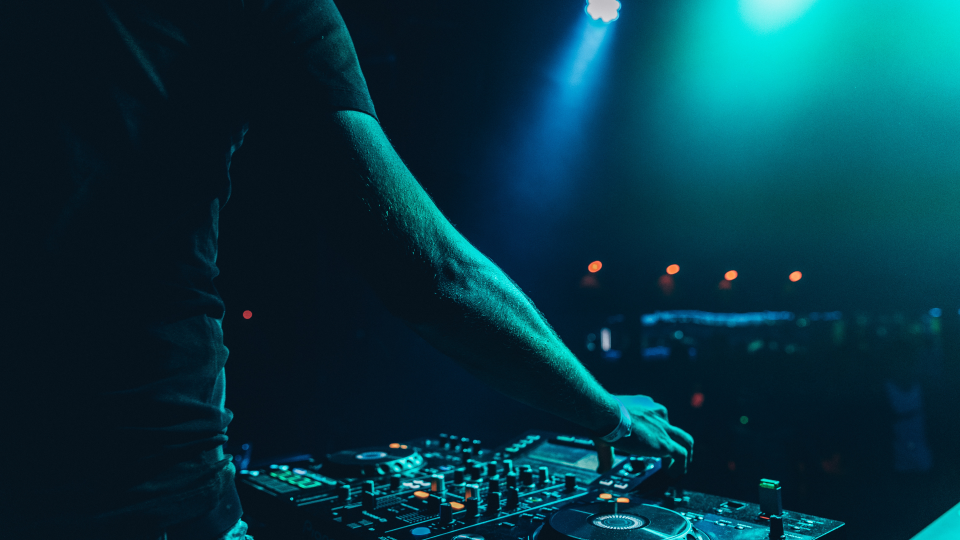The 7 Essential Rules of DJing
Whether you’re a veteran behind the decks or just starting out, understanding and appreciating the fundamentals of DJing is key. These 7 important rules form the backbone of what makes a great DJ. Live by these and you won’t go too far wrong.
1. Give your Crowd the Music they want

Remember, your primary role is to give your audience a great experience. Depending on the crowd and the event’s theme, this might mean playing tracks they’ve never heard but will enjoy discovering, familiar favourites they already love, or often a mix of both. While you can do your best to give them the music they want remember You can never please all the people all the time. Just be constantly vigilant for signs of dissent, especially if it’s coming from a significant portion of the audience rather than just a few individuals.
2. Stay Organized and Know your Filling System
With digital DJing, you have access to an endless world of music—but that can be overwhelming when you’re deep in the mix. The key is to create and maintain an effective filing system that lets you find tracks in seconds. There’s no one-size-fits-all approach; your system should be specific to you and your music and evolve as you grow as a DJ. Fine-tune it regularly by removing unplayed tracks or organizing folders by venue or event type. And don’t forget to properly name and tag your tracks to make searching efficient.
3. Learn to Beatmatch by Ear

While technology has stepped up to provide lots of tools to help DJs beat match, including the controversial Sync button, there is no substitute for being able to do it by ear. If you are new to DJing you may never have had to manually beat match. Consider spending time practising the subtle art of keeping two tracks together in time. It’s fun and a fundamental aspect of the art of DJing.
Technology isn’t foolproof, so always be ready for unexpected challenges with beatmatching tools. Stay alert to mixes that drift out of sync, and trust your ears—they’re your most valuable asset as a DJ, far more reliable than any on-screen cues.
4. Work on Stage Presence

Stage presence is vital for a DJ because while you will undoubtedly get energy from the crowd, your energy will also influence the crowd’s vibe. It creates a Symbiotic exchange with both parties feeding off each other. it is therefore crucial that you look like you’re enjoying the music as this creates a connection and encourages the audience to do the same. it doesn’t mean you have to spend your entire set with your hands in the air (You will need them for mixing) Just don’t look as though you’re standing waiting for a bus.
5. Use EQ and Filters
Using EQ and filters when beatmatching and blending tracks is essential for executing smooth, professional transitions. By making purposeful adjustments to bass, mids, and highs, you ensure overlapping tracks don’t clash sonically or overpower each other. For instance having two basslines playing together, even if in the same key, can sound messy and muddy. Cutting the bass on one track while introducing a new song, helps keep the sonic balance. Filters are a dynamic form of EQ that also help to creatively shape transitions, preventing frequency clashes. Their unique sweeping quality can also add tension or energy to your mixes.
It’s worth noting that the recent introduction of Stem mixing, where you can remove entire elements from a track, (i.e Bass, vocal, drums) has been a total game changer, negating the need for as much EQ adjustment.
6. Stay away from the Clip Zone

This is a rule many of us, even your superstar DJs, have been guilty of overlooking, but monitoring your levels when mixing is extremely important. Pushing levels too high can cause clipping, which distorts the audio and significantly reduces sound quality. Clipping doesn’t just ruin the crowd’s experience, it can also damage speakers, amps, and other equipment over time. Always aim to keep your levels in the green or just tickling the reds. Most clubs have limiters in place that prevent the volume from exceeding a given level. So pushing your mixer’s signal into the red and beyond will only reduce the dynamic range and quality of your music. It will not result in a significant volume boost.
7. Being Reliable and Courteous
Finally, while this rule doesn’t require any technical skill, ignoring it can significantly hinder your progress as a DJ. Reliability and courtesy are essential for building trust and strong relationships within the industry. If you have a residency, ensure you always arrive early and treat everyone— from management to security—with respect. When performing alongside other DJs at festivals or events, take the time to engage with your fellow DJs and the promoters. having amazing skills as a DJ will only take you so far. Building and nurturing relationships is equally important to sustain a long and successful DJing career.
Remember – RouteNote Create subscriptions start from as little as $2.99. You also get 10 FREE credits to spend on samples along with access to our FREE sample pack bundle when you sign-up!
